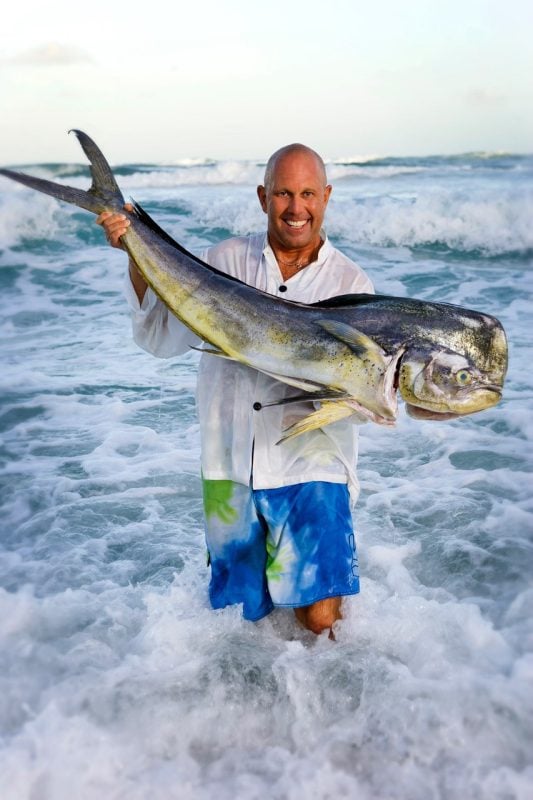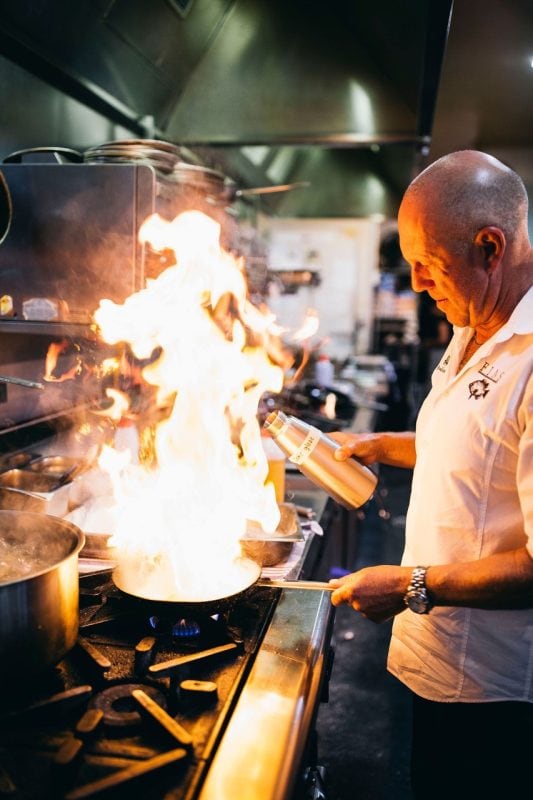Chat with a chef: Steven Snow of Fins restaurant
Chef Steven Snow is the owner of Fins, Australia’s most awarded regional restaurant, in Kingscliff, northern NSW. Snow has successfully opened and relaunched over a dozen restaurants in Australia and around the world. His flagship fine diner Fins has been a ‘hatted’ restaurant for more than 22 years. Tuna Australia caught up with Steven to learn about his chef journey and favourite ways to (not) cook tuna.
Why and how did you become a chef?
I have no formal training as a chef! I came from a corporate career (with a business/ law degree) and decided to follow my passion for food in my mid 20s. I couldn’t stand sitting in an office where all I had to look forward to was a cup of coffee at 10 am. I have always been a keen surfer and understood that being a chef would afford me plenty of time to surf by day and cook by night.
Food has been part of my life since a young child. I remember coming home from football training and cooking a curry (or baking a cake) with mum. She grew up in Pakistan, so our food at home was different. My passion for cooking has taken me all over the world—France, Portugal, Morocco, Thailand, USA, UK, and Fiji—as a guest chef. I picked the right path.

Chef Steven Snow holding a mahi mahi. Photo by Brian Usher.
What's the philosophy behind your highly awarded restaurant, Fins?
It sounds weird but buying the best produce available (and paying the asking price) and serving food that seriously wows people is way more important to Fins than making money. We are profitable because of this.
What drives your passion for sustainable seafood, including tuna and swordfish?
I am passionate about seafood and all produce. I am also very aware of the environment and love our oceans. My philosophy involves doing whatever I can to ensure the fish we serve at Fins is treated with respect and caught sustainably.
Therefore, I prefer brain-spiked fish stored in an ice slurry, locally caught fish, and I almost always buy our fish whole to utilise every part. We only serve wild-caught fish. It’s extremely important to me that my children can enjoy fish too.
Can you tell us about the inspiration behind your cookbook, Byron cooking and eating?
It celebrates our amazing region and the array of brilliant produce available to us. Over the past 32 years of running Fins, there have been some wild stories. People love to hear about the grit of restaurants (such as guests running around Fins without clothes on, a corpse floating past the dining room, and more). Anyway, plenty has happened since then, and a new book is on its way.
You host monthly cooking classes at the in-house Fins Cookery School. What are the top tips you share with students in your classes?
- Rather than buy more of lesser quality produce, we encourage people to buy less of the best produce you can afford.
- Slightly undercooking fish—the latent heat will continue cooking it en-route to the table.
- People often ask, “how will I know my guests will enjoy what I cook?” My reply is – “if it tastes good to you, it should taste good to everyone else.”
- The importance of correct seasoning, especially with salt. Also, pan frying spices just to the point where they are warm enough to release their oils for maximum health benefits.

Chef Steven Snow. Photo by Kristy Mason.
What do you love about cooking and serving up tuna and swordfish meals?
With tuna, I love not cooking it. Our hot and cold sashimi plate is (immodestly) seriously good. Many people are addicted to it. When I cook tuna, I won’t go past medium rare.
BBQ’d swordfish is brilliant. We serve it on a crispy rice cake with a seriously spicy sauce made from chillies, ginger, turmeric, and curry leaves from my garden. There is a myriad of ways to serve these brilliant fish.